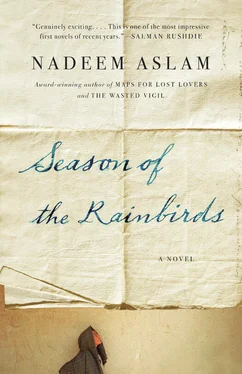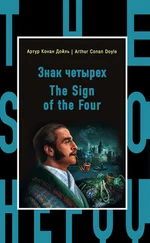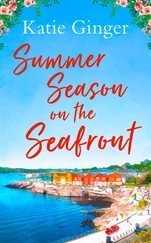Mr Kasmi came into the room. ‘Whoever else was responsible for those months, sister-ji, we can be sure it wasn’t Maulana Hafeez. He was out of the country at the time.’ Mr Kasmi remembered, as clearly as yesterday, the day he had seen an anti-Ahmadiya slogan for the first time. Through the window of his bedroom he had looked down on to the street and seen a boy squatting by the wall opposite. He had paints and brushes by his side and he was waiting for the white rectangle he had painted on the wall to dry. When next Mr Kasmi looked out through the papery flowers of the bougainvillaea — it was spring — the white background had words written on it, and the boy was long gone. Soon there would be stencils, and handbills, and leaflets dropped on to waving children from a blue aeroplane.
They were quiet for a few moments. Then Zébun reached her hand under the pillow. ‘Brother-ji, I have something I would like you to see.’
Only when the envelope was out of the gloom cast by the mosquito netting did Mr Kasmi see that it was dark green in colour.
‘Sister-ji! Who was it from?’
Zébun folded her arms across her stomach. ‘From his wife. It was an invitation to their daughter’s wedding.’
The sound of Alice’s wooden heels resounded on the tiles. ‘I decided to feed them to Bano’s geese instead,’ she shouted into the bedroom, explaining away her prolonged absence.
Zébun said quietly: ‘You mean you felt like gossiping.’ And loudly: ‘Don’t forget we’re answerable to your parents for your safety, girl.’
It was a short letter, written in an elegant hand, and arranged into neat paragraphs. Mr Kasmi folded the paper. The smell of old paper — familiar to him from his volumes of Dickens, Wamaq Saleem and Virginia Woolf — wafted up.
‘She called you sister,’ he said and stood up to hand the letter back. ‘What do you plan to do?’
‘I don’t know. It was written a long time ago.’
‘Nineteen years ago.’
‘He’d been dead five years when she wrote it. Why did she want to invite me to their daughter’s wedding?’
Mr Kasmi was more direct this time: ‘Do you plan to write, sister-ji?’
Zébun was tracing the edges of the envelope with a fingertip. ‘We don’t even know whether she’s still alive, brother-ji.’

‘The marshal eagle’s escaped!’ shouted one of the night-patrollers. They had gone into the shed by the stables to see the birds tethered on their perches. There were two golden falcons, four eagle hawks and four peregrines. Some — those which wore leather hoods over their heads — looked as though they were sculpted in wood.
The three-year-old marshal eagle was an obedient bird with a peaceable character and was seldom tied up. It had been bred in an aviary and had learned not to fly into the wire mesh. It was graceful with a five-foot wing span and never ate anything unless it was offered on the point of a dagger. During hunts it flew in a perfect circle for a long time — like the hand of a distinguished lady uncertain above a plate of sweetmeats, Arshad Ali had often said — before descending upon the selected morsel. In the mountains it could be trusted to come back from flights of considerable distance, and on several occasions had been left out overnight. But skies around the town were unfamiliar and Arshad Ali had tied it to the perch with a chain fixed with a metal half-moon link that was hammered shut.
The bird had broken the chain and flown out through one of the ventilation holes.
They did not have to search for long. Lining the wider streets of the town and the inner banks of both rivers were large talli trees, both sprawling and tall. It was in one of these, growing on the bank of the eastern river, that they located the eagle, desperately flapping its wings near the topmost branches. The chain which had become entangled in the branches had broken at the half-moon link and a considerable length was still attached to the bird’s prehensile claw.
‘She’ll break a wing!’ Arshad Ali climbed up as the bird struggled to free itself.
Evening was easing into night. The air was filled with the cries of alarmed birds who had returned from the day to find a predator near their nests. From high above their heads the four men heard the sound of wings striking the branches become suddenly louder, increase to a frenzy, then stop altogether: Arshad Ali had grabbed the chain, pulled the bird under his arm and stilled the beating wings. He held the claws — each the size of a human infant’s hand and each prong ending in a razor-sharp hook — in one hand and began the long climb down. He had cleared the canopy of leaves and was almost at the base of the trunk when his left foot slipped from under him. He released the claws to steady himself against the trunk. The marshal eagle, equally instinctively, reached for the nearest object and embedded a claw deep into Arshad Ali’s face.
He could not cry out. The bird fastened on his mouth with one talon hooked under the jaw and another through the upper lip; the remaining two were buried in the left side of the face. The skin on the cheekbone had been pulled down to reveal the flesh lining the eyeball. Arshad still held the bird firmly under the arm, its curved beak open to expose a tongue the colour, shape and size of a peeled almond.
‘Get a knife. We’ll have to kill her!’
Arshad Ali was making a dull grunting sound at the back of his throat, behind the clamped-shut mouth. The claw was turning red with blood. One of the men produced a large curved knife enveloped in a canvas sheath. Arshad Ali reached his hand to his jaw and with a sharp, desperate movement prised the back talon from under his chin. A jet of blood, dark blue in the failing light, soaked the front of the shirt.
‘Don’t kill her!’ he shouted as soon as the jaw was free.
Working by the light of a torch they loosened the bird’s ferocious grip. Two men took the eagle home while the other two, walking either side of Arshad Ali, accompanied him to Dr Sharif’s house.
The physician was closing the door of the surgery. He took a step back into the room. ‘And whose picture were you trying to take?’ He turned around and hurried to the large screen on rubber wheels which he pushed aside to reveal a couch.
Arshad Ali forced a smile at the physician’s comment. With a wave of his free hand — the other clasping the front of his shirt to the wounds — he sent the two men away. The surgery was divided into two sections by a large curtain; behind the curtain female patients would sit. On the wall above the couch was an old calendar depicting a Nigerian rural scene — a souvenir of the four years Dr Sharif had spent in Africa.
‘What happened?’ Dr Sharif asked as he approached the couch, collecting as he came a kidney-shaped receptacle holding a pair of scissors, gauze and a roll of surgical tape.
‘One of my birds,’ Arshad Ali managed to say before a spike of pain forced him to wince.
Dr Sharif examined the wounds. Three of the four gashes, each a three-quarter-inch tear, could be clearly seen; the fourth was hidden in the bristly moustache. ‘You’re lucky it wasn’t an eye,’ the physician said and pressed cottonwool to the cheek to absorb blood and the glistening beads of sweat. ‘There’s no need for stitches but you’ll have to have a course of tetanus injections.’ Dr Sharif dipped the cottonwool in the beaker of water. The water turned orange.
‘There is something I have always wanted to know, doctor-sahib,’ Arshad Ali said through stiff lips. ‘When we were children we used to say that if a dog bit you, you had to have fourteen injections in your stomach. Is that true?’
Читать дальше













